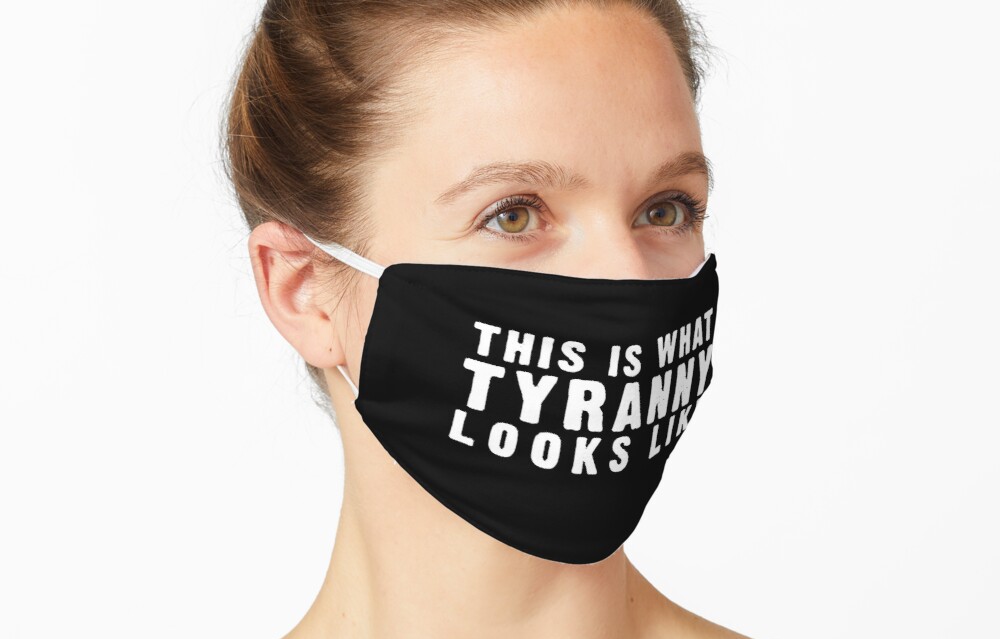
Mandatory Masks Endanger Your Health and Your Liberties
As the United States begins to re-open from lockdowns, jurisdictions are instituting measures that dictate how people are able to participate in society. One of the most common is compulsory mask-wearing
Officials throughout the country are seeking policy guidance on masks from the Centers for Disease Control and Prevention (CDC), which has flip-flopped its position on face coverings several times since March but is now recommending that everyone wear a mask in public.
State and local authorities are taking varying approaches in what their emergency mask orders stipulate and how they will be enforced. Rules differ by state and are constantly changing. However, to date, only a handful of states don’t have any mandatory mask measures.
Though CDC’s policy guidance encourages the use of face masks, there is substantial evidence showing that masks are harmful and a lack of evidence showing they are effective in preventing the spread of coronavirus. Studies show that wearing a face covering reduces blood and tissue oxygenation — which can be deadly — while increasing carbon dioxide levels. Mask-wearing can also increase the risk of infection and the spread of viral illness, hinder detoxification that occurs via exhalation, impair the immune system and cause many other ailments, both physical and emotional. Moreover, some masks have been found to contain known carcinogens, which put people at risk from inhaling toxic chemicals and having them come into contact with their skin.
Lawsuits are now being filed throughout the country to challenge mandatory masks. Despite evidence of harm and questionable evidence of benefit, fall 2020 school guidelines across the country are calling for mandatory masks. Public school systems (e.g., San Diego, California) are concerned that mask requirements in the classroom will spark even more legal battles.
It is unethical and unconstitutional to force healthy citizens to abide by measures that can result in physical and emotional harm and that impinge on their ability to move freely throughout society without discrimination. For those with deeply held religious beliefs, mask mandates violate their ability to abide by natural law and follow their convictions to walk in faith, not fear. As such, the decision to wear a mask is a highly personal one and should not be universally mandated; measures that are meant to protect the community as a whole are ineffective if they hurt individuals in that community. Please email and tweet your lawmakers now and urge them to do their part to make sure that mask-wearing is voluntary, not mandatory.
THE GREAT MASK DIVIDE




